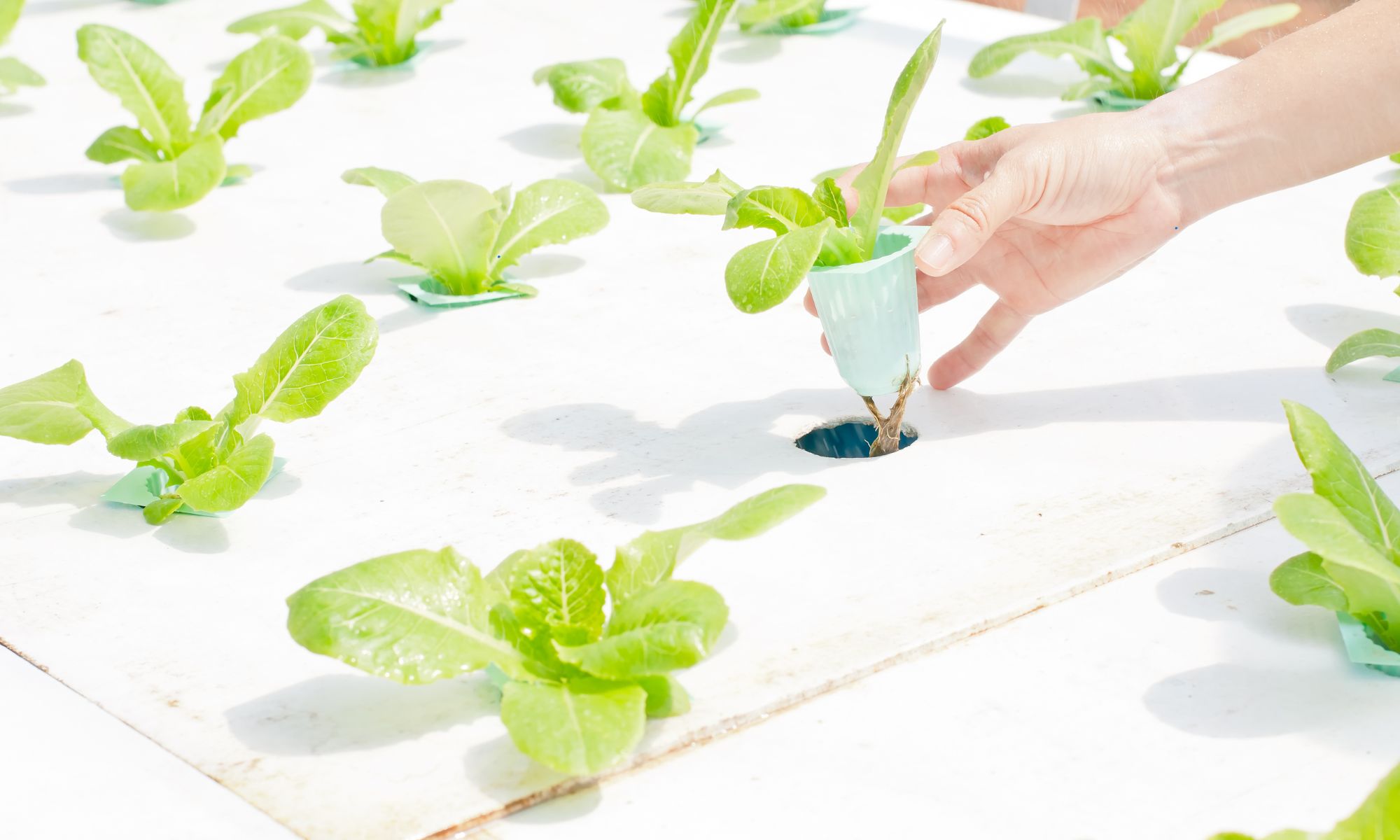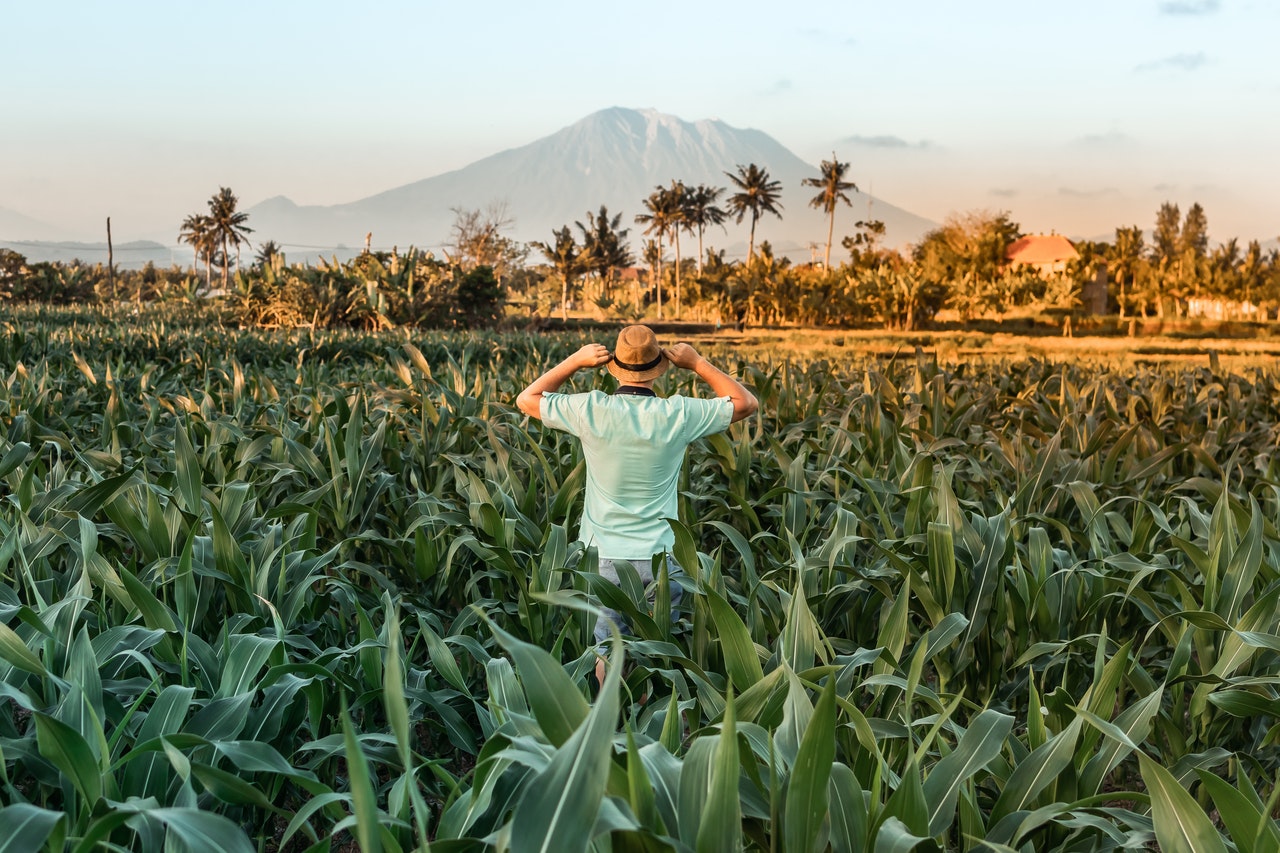They say that expectations lead to resentments and that acceptance brings peace. I wish I had remembered those truths before I began my year teaching abroad in Jogjakarta (Jogja).
Jogja is a small university city on the Indonesian island of Java. The city is known for its culture, and the island is known for its fertile land and dense population.
I had never been to Indonesia, but had travelled around Thailand the previous summer. I loved Thailand; its food, beaches, Buddhist culture and calm people suited me. I figured South East Asia is South East Asia, so assumed Indonesia couldn’t be too different. I imagined my year in Jogja would share many similarities with my couple of months holidaying in Chiang Mai, Bangkok and the southern Thai islands. Further, I figured I would get on even better since Bahasa Indonesia (the language spoken in Indonesia) is a lot easier to master than Thai.
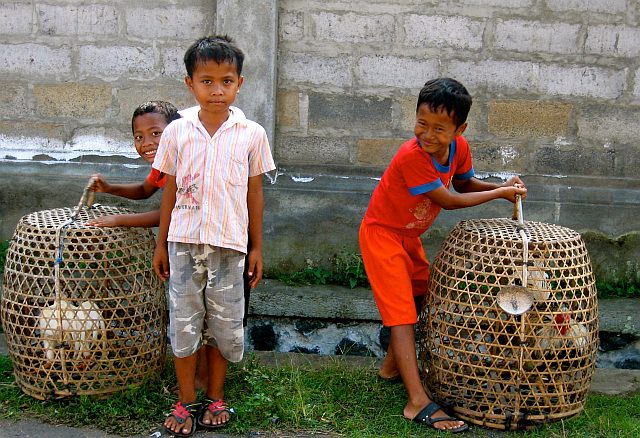
Local kids, a village in Bali
I was completely wrong. Thailand was as similar to Jogja as Guadalajara would be to New York. Both Guadalajara and New York are in North America, but geography doesn’t predict culture.
The differences were multitudinous. Thailand is generally Buddhist while Indonesia is largely Muslim. The Thai beaches were inviting and calm while the Central Javanese ones claimed drowning victims often and mercilessly. Public transportation, motorbikes, tuk tuks and walking were great options in Thailand, but in Jogja choices were limited and walking the streets was uncomfortable given the pollution, heat and lack of sidewalks. Women in Jogja commonly wore jilbabs (head coverings) and covered their bodies, while in Thailand, the attire seemed pretty similar to what I was used to in the US.
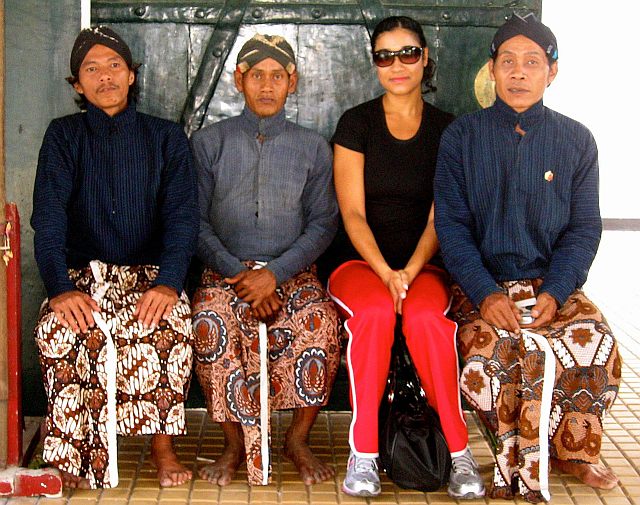
Sitting with locals at the kraton (palace) in Jogja
I spent my first few months in Jogja trying to focus on my post teaching at the local international school, but also gave a lot of mental energy to trying to reconcile my expectations for my year teaching abroad with my reality.
Once I got mentally rooted in my new physical space, I was able to take advantage of all that Indonesia has to offer. I visited temples that are World Heritage sites, learned a new language and practiced traditional crafts like batik painting and silver jewellery making. I also made great Indonesian and ex-pat friends along the way.
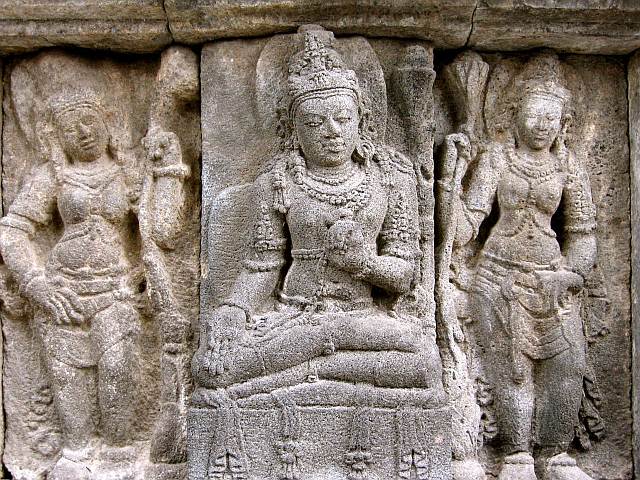
Close up of the stone carving at Prambanan Temple
In my Indonesian friends I found greater understanding of their culture when I asked them for explanations of practices that baffled me. In my ex-pat friends I found understanding of my bafflements. As I increased my acceptance and tried to change myself to fit the culture, my experience became more and more fulfilling.
The slow pace of the people stopped frustrating me and began to calm me. The downpours during the rainy season became a great reason to curl up with a book at home. The inquisitive strangers’ questions transformed into chances to practice Bahasa.
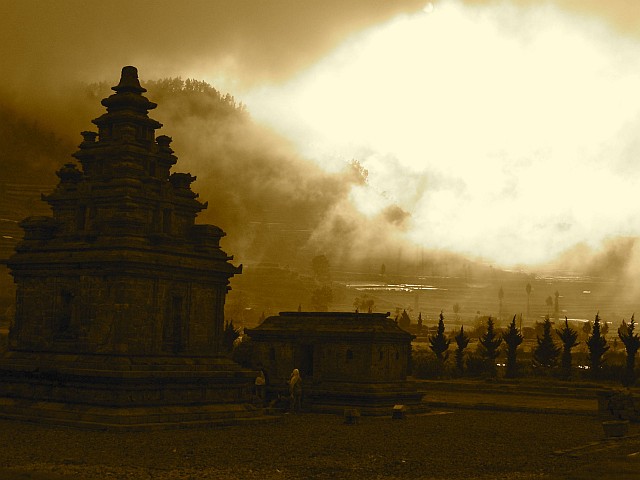
Dieng Plateau, Java
I tried to apply the when in Rome, do as the Romans guidance, but often felt that it was enough just to remember I was in Rome so-to-speak and to take what came with that.
Interested in Indonesia? Browse our international schools in Indonesia to find your perfect position.



